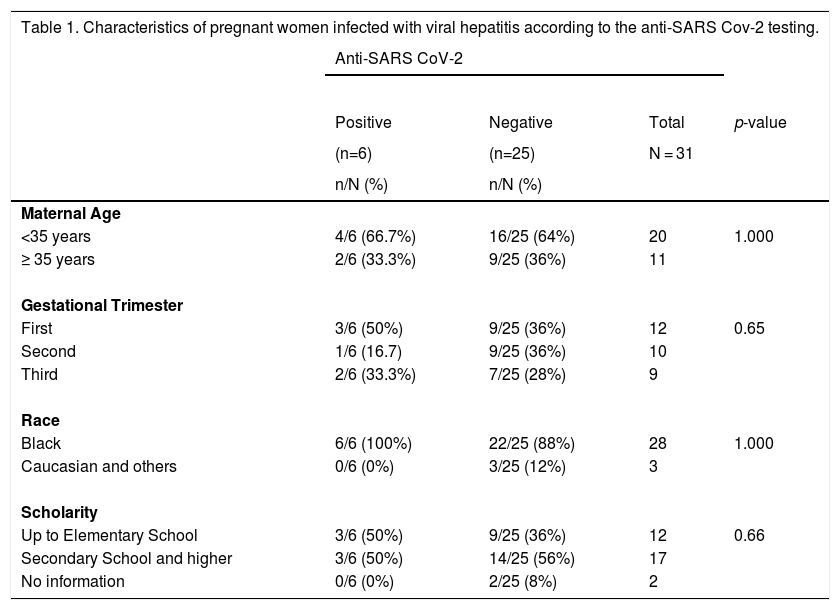
Abstracts of the 2021 Annual meeting of the ALEH (Asociación Latinoamericana para el Estudio del Hígado)
More infoPregnant women are considered more vulnerable to viral infections, such as severe viral respiratory infections and viral hepatitis. Data about Brazilian pregnant and postpartum women found a case fatality rate of 12.7% among COVID-19 Acute Respiratory Distress Syndrome cases (ARDS). Studies in pregnant women found prevalences of antibodies (Ab) against SARS CoV-2 between 4 to 14% in Europe and North America. However, there is no data about the prevalence of SARS CoV-2 Ab among Brazilian pregnant women with viral hepatitis.
ObjectivesThe objective of this study was to assess the prevalence of SARS CoV-2 antibodies in pregnant women infected with hepatitis B or C.
MethodsA total of 31 pregnant women (21 HBV and 10 HCV) were recruited in Rio de Janeiro (Brazil) from January 7, 2020 to January 11, 2021. The study protocol was approved by the Brazilian National research ethics committee. Serum samples were collected and tested for total antibody (Ab) and IgM Abs specific for SARS-CoV-2 using electrochemiluminescence assay (Elecsys Anti-SARS-CoV-2, Roche).
ResultsPregnant women were at first (n=12), second (n=10) and third trimester of gestation (n=9). None of them had diabetic or are living with HIV, while three women presented arterial hypertension. Mean age was 30.6± 7.26 years old, 90.3% were black and 38.7% had up 8 years of education. Total anti-SARS-CoV-2 prevalence was 19.3% (6/31). Most of pregnant women were at first trimester of gestation, aged less than 35 years of old, and were black race. However, none of these variables were statistical associated to anti-SARS CoV-2 antibody positivity (table 1).
ConclusionsThis is the first report of SARS CoV-2 seroprevalence in pregnant women infected with viral hepatitis, where seroprevalence appears to be greater than that observed in pregnant women without liver disease in the same period.










